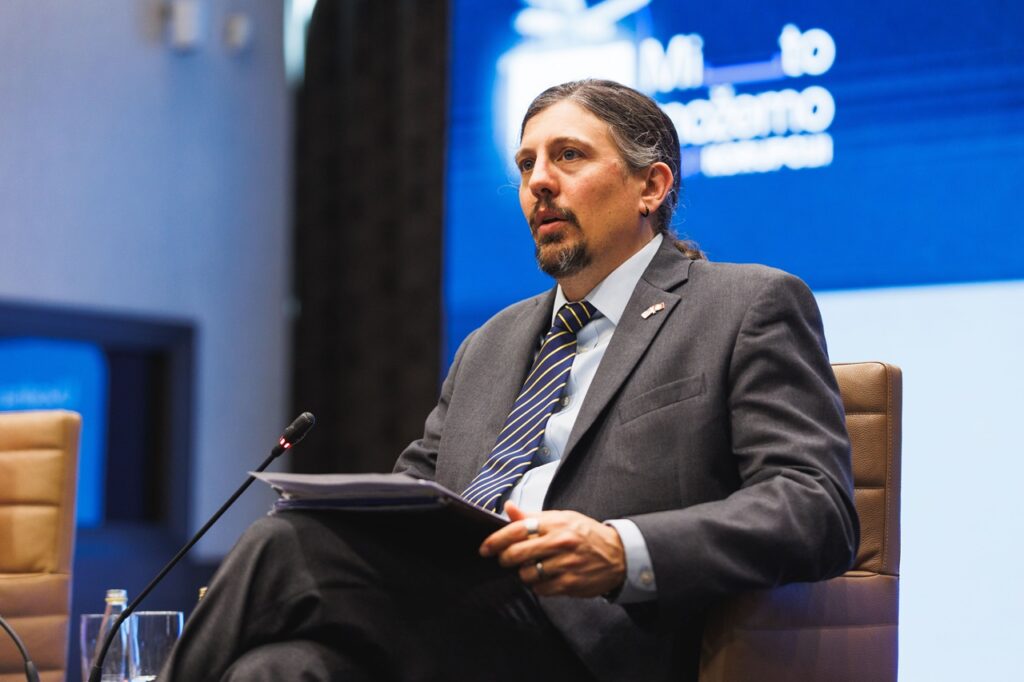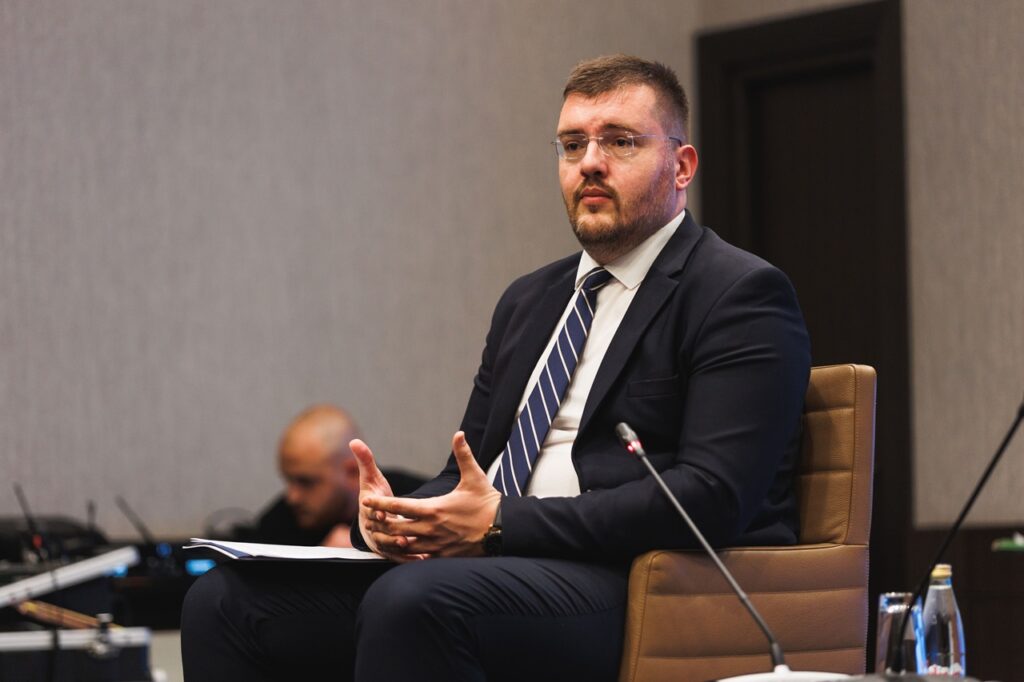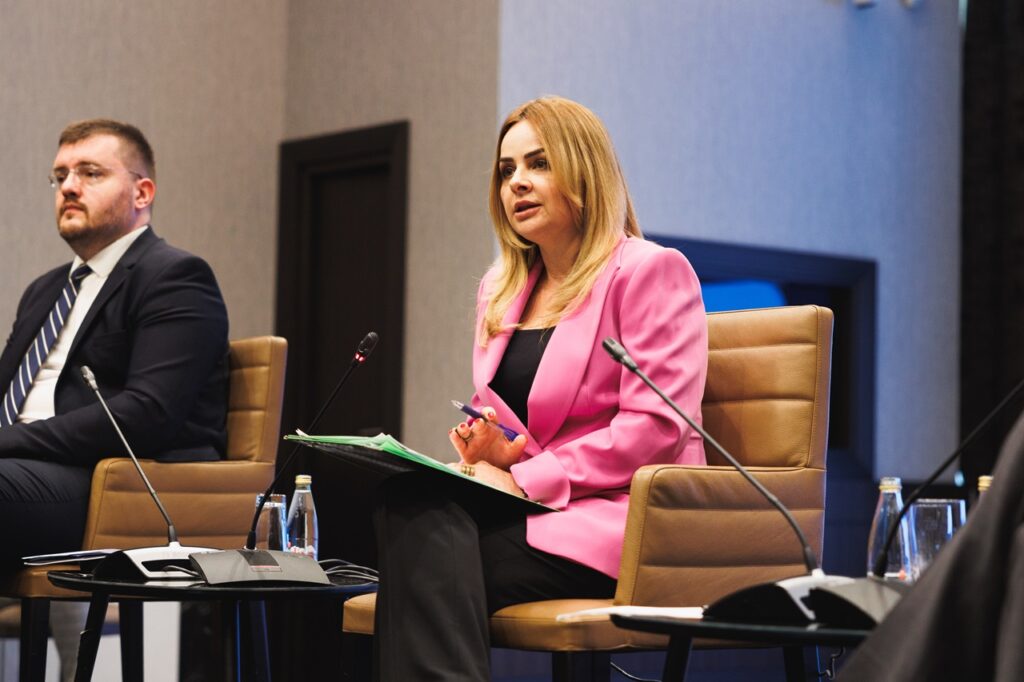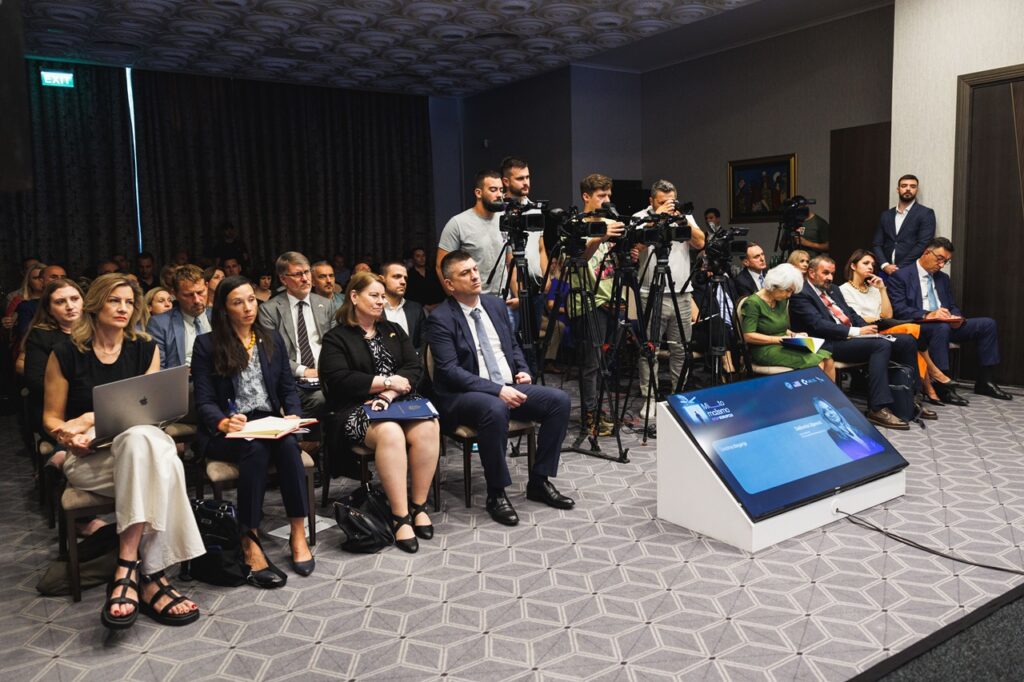No state is immune to the effects of corruption, and it is necessary for political leaders, institutions, media representatives, civil society, the business sector, and citizens to be involved in combating this phenomenon, was the message from the opening of the forum “We Can Do It – STOP Corruption,” organized by the Centre for Civic Education (CCE) within the project PACT against Corruption, supported by the U.S. Embassy in Montenegro, the Bureau of International Narcotics and Law Enforcement Affairs (INL).
The U.S. Department of State’s Global Coordinator for Anti-Corruption, Richard Nephew, recalled that the US President Biden, in 2021, introduced the first-ever U.S. Strategy on Countering Corruption, declaring corruption a core national security interest of the USA.
“The United States has long recognized the destabilizing effects of corruption around the world and has made combating it a priority,” he said.
“Corruption saps economic growth, hinders development, destabilizes governments, undermines democracy, and fosters global instability and insecurity. Corruption prevents governments from being able to deliver for their citizens, including essential services like healthcare, quality education, roads, and security. When corruption persists for decades, it worsens these issues, creating a sense of impunity and weakening trust among citizens that is necessary for democracy to thrive,” Nephew noted.
“The fight against corruption is a matter of national and international security,” Nephew emphasized in the context of Russia’s aggression against Ukraine.
He welcomed the adoption of Montenegro’s National Strategy for the Fight Against Corruption and indicated that its implementation would be closely monitored.
According to Nephew, the judiciary’s role is crucial, as an independent approach to addressing all corruption cases is necessary to establish accountability for all corrupt acts.
“No country is immune to the effects of corruption, and its prevalence can create an environment for the decline of democracy in that country,” said Nephew.
“The fight against corruption is not and cannot be the task of the Government alone; various actors must be involved in bringing the accused to justice,” Nephew stated.
He highlighted that this is why the U.S. government involves numerous partners, such as the media, civil society, and citizens, and stated that the Government of Montenegro should do the same.
Nephew emphasized that the U.S. has invested $25 million in the rule of law assistance in Montenegro over the past five years and announced continued support for the efforts of institutions and civil society to better serve the citizens.
“The implementation of these difficult reforms may face resistance, but they are crucial for long-term stability and progress. Therefore, I urge all actors to unite in the fight against corruption, especially urging political leaders to be committed to the rule of law. Ignore political distractions, remain impartial, stay focused on the goal of EU accession, and lay a solid foundation for the country’s prosperity,” Nephew advised.
Deputy Prime Minister for Political System, Judiciary, and Fight against Corruption, Momo Koprivica, indicated that corruption is a complex and multidimensional phenomenon that endangers democracy, the rule of law, equality before the law, and fundamental human rights, noting that it also carries economic damages and is present in the private sector as well.
“Special challenges and key prerequisites for combating corruption are strong political will and the involvement of all segments of society – the media, civil society, and the business sector,” Koprivica stressed, highlighting the importance of strengthening legal awareness.
He noted that the government’s goal is to achieve zero tolerance for corruption, which is why the Anti-Corruption Council was quickly formed, followed by the creation of the Anti-Corruption Strategy.
Koprivica emphasized that a law is good to the extent that it minimizes the rate of bad behaviour. “The work on legislative reform is not finished, it continues with the goal of providing an effective institutional response and harmonizing that legislation with the recommendations of the European Commission and the Venice Commission,” he explained.
He stated that the Strategy includes three key elements – effective enforcement of regulations, addressing the causes of corruption, and strengthening legal awareness. “Strengthening legal awareness is especially important, considering the decades-long absence of its development. Legal awareness has been deteriorated and in a serious crisis for decades,” assessed Koprivica.
Koprivica stated that the Strategy identifies areas particularly susceptible to corruption and clear steps towards establishing normative conditions for lifestyle control, for example, of police officers and inspection service members.
“This includes the planned digitization of the Port of Bar and the establishment of an electronic surveillance system. Additionally, we have foreseen an e-construction permit system and an e-violation order system as good ways to eliminate corruption,” said Koprivica.
He emphasized that one of the most important obligations of the Government is to support the prosecutorial organization while respecting its autonomy and independence.
“We have adopted a set of anti-corruption and judicial laws harmonized with the recommendations of the Venice Commission and EU legal acquis. We expect the progress Montenegro has made in this area to be recognized soon at the Intergovernmental Conference in Brussels,” added Koprivica.
He highlighted significant achievements through amendments to the Law on Prevention of Money Laundering and Financing of Terrorism, which, according to him, avoided Montenegro being placed on the MANIVAL grey list, and which he considers to be part of the anti-corruption framework.
Koprivica expressed confidence that true progress on the European path is yet to come.
Executive Director of CCE, Daliborka Uljarević, stated that the fight against corruption fundamentally depends on political will and institutions that are part of the systemic anti-corruption chain. “Unfortunately, we are still in the phase of trying to identify measurable effects of that political will and the work of those institutions, as they are chronically lacking. Corruption cannot and should not be a way of life, nor should meeting standards be approached formally, and simulating anti-corruption efforts can only create additional undesirable effects,” Uljarević said.
She stressed that the change of government in Montenegro should have brought a break with previous bad practices and introduced substantive, non-selective, and dedicated anti-corruption efforts, which has not happened.
“We have seen some personnel changes and a continuation of unhealthy solidarity among political actors regarding what they see as the ‘natural’ distribution of power, accompanied by unrestricted and uncontrolled management of public resources and illegal and unethical occurrences,” noted Uljarević.
She stated that this is contrary to the basis of the fight for a democratic and accountable government that was supposed to bring about the limitation of arbitrary decision-making by the authorities.
“The progress that has been made is more the result of efforts by the EU, the US, and other partners of Montenegro than a genuine desire in Montenegro to put its house in order,” said Uljarević.
She pointed out that some intervention measures include strengthening institutions, not individuals within them, developing pluralism in political life where actors communicate argumentatively, improving citizens’ standards, along with a functional anti-corruption legislative and institutional framework, and an active approach by all to the problem of corruption.
MINA




